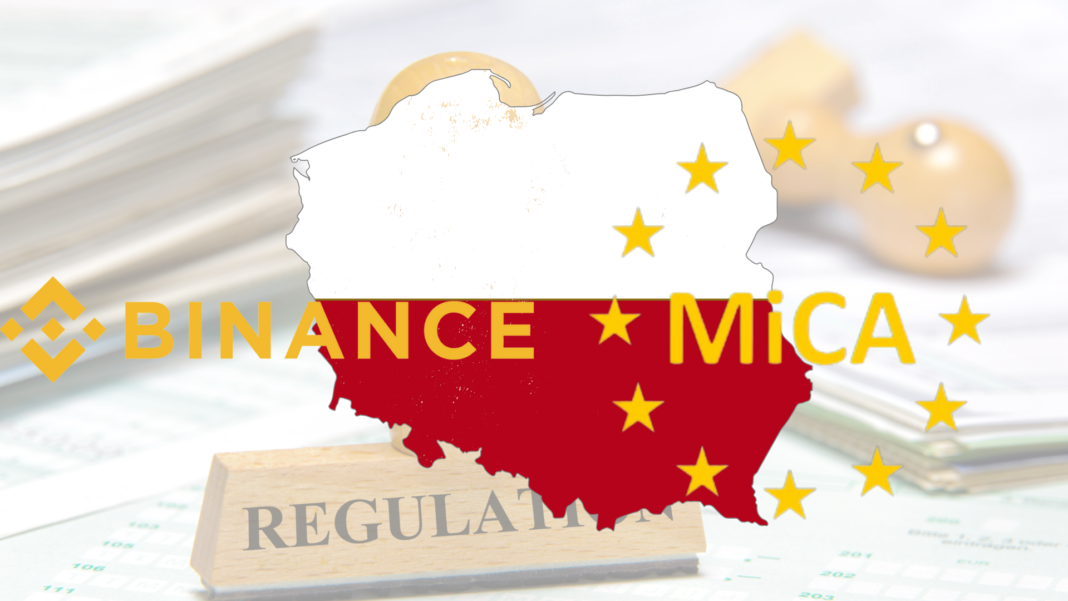Binance, the world’s leading cryptocurrency exchange, has announced changes to its deposit and withdrawal procedures in Poland to align with the European Union’s Markets in Crypto-Assets Regulation (MiCA).
This update, scheduled for January 20, 2025, aims to ensure compliance with EU regulatory standards and bolster transparency in cryptocurrency transactions within the region.
Key Changes in Deposit and Withdrawal Procedures
In a blog post published on January 17, 2025, Binance outlined the new procedures. According to the post, users will be required to provide additional information when making crypto deposits and withdrawals starting from January 20.
Specifically, users performing crypto deposits exceeding €1,000 (or its equivalent in other currencies) will need to disclose the sender’s information.
On the other hand, those withdrawing funds from Binance will be required to provide details about the beneficiary, including their full name, country, and the name of the receiving crypto exchange if applicable.
What Transactions Are Affected?
This change primarily impacts crypto deposits and withdrawals. Binance users who engage in crypto transfers to or from another exchange or self-hosted wallet will be prompted to provide more detailed information regarding the transaction.
Failure to comply with these new requirements could result in delayed or unprocessed transactions. In some cases, Binance may be forced to return the transaction to the originator if the necessary information is not provided.
Binance has assured its users that this step is part of the company’s ongoing efforts to comply with new EU regulations and to enhance the security and transparency of crypto transactions.
MiCA: A Milestone for Crypto Regulations
The implementation of MiCA marks a significant regulatory milestone for the cryptocurrency industry in the EU. MiCA aims to create a comprehensive regulatory framework for crypto assets, which has been lacking in the region until now.
By setting clear rules for crypto companies, MiCA seeks to foster a more secure environment for users while reducing the risks associated with cryptocurrency trading and investment.
This regulation focuses on consumer protection, market integrity, and reducing financial crime, all of which have been significant concerns surrounding the industry.
Also Read: German Firms At Risk Of Missing MiCAR License Window, Regulatory Hurdles Emerge
However, MiCA regulations could have far-reaching consequences beyond basic compliance. One such outcome could be the potential ban of certain stablecoins in the EU, including Tether (USDT).
Stablecoins like Tether, which are widely used in crypto markets, may face stricter regulatory scrutiny under MiCA due to concerns over their backing, liquidity, and potential risks to financial stability.
This could result in a situation where Tether, and possibly other similar stablecoins, could be prohibited from operating within the EU unless they meet new regulatory requirements.
The Road Ahead for the Crypto Industry
The MiCA regulations are expected to have a profound effect on the European crypto landscape. As exchanges like Binance adjust their operations to comply with these rules, it sets a precedent for the rest of the industry.
Companies will need to navigate the evolving regulatory environment carefully, as failure to comply with MiCA could lead to significant penalties, including the removal of services within the EU.
Also Read: Four Companies Including MoonPay Secure MiCA Licenses In The Netherlands


